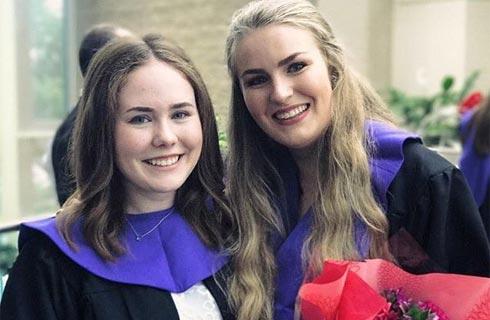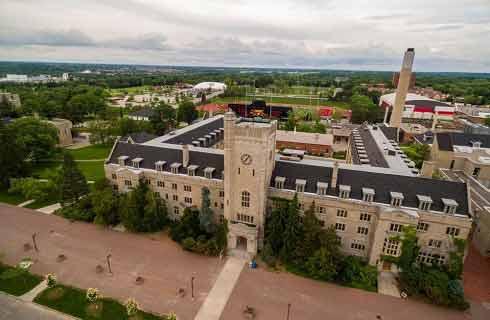化学哲学博士-分析化学
Doctor of Philosophy in Chemistry - Analytical Chemistry

学历文凭
Ph.D.

专业院系
Department of Chemistry

开学时间

课程时长

课程学费

国际学生入学条件
IDP—雅思考试联合主办方

雅思考试总分
7.0
- 雅思总分:7
- 托福网考总分:92
- 托福笔试总分:580
- 其他语言考试:Minimum Duolingo English Test requirement- 125
CRICOS代码:
申请截止日期: 请与IDP联系 以获取详细信息。
课程简介
Measurement forms the foundation of the scientific method. Analytical chemists in our department develop novel measurement technologies in diverse fields ranging from human health to environmental science. Our Analytical Science program is ranked among the top three in the nation, according to the U.S. News & World Report.<br><br>Because modern analytical chemistry drives so many different areas of scientific inquiry, our program is closely entwined with the richly collaborative environment at UW-Madison. UW is unique in offering not only a first tier program in Analytical Chemistry, but also has first tier biological science and engineering programs, as well as a world-class medical school. We therefore develop measurement technologies in the context of cutting-edge chemical, biological, and environmental questions, often with implications for human health, through extensive collaborations across our campus.<br><br>Students in our program will typically leverage, and often innovate, capabilities across a wide range of chemical instrumentation and approaches including: chemical separations, electro- and photo-chemistry, mass spectrometry, nanomaterials, and spectroscopy. Through projects that span from developing a completely new instrument for making field measurements to those that discover novel biology about the novel coronavirus – our graduates become leaders in both academia and industry.
相关申请
 预科
预科 奖学金
奖学金 实习机会
实习机会 在校学习
在校学习 跨境学习
跨境学习 校园授课-线上开始
校园授课-线上开始 在线/远程学习
在线/远程学习
开学时间&学费
学费信息仅供参考,请与IDP联系以获取详细信息
| 开学时间 | 时长 | 学费 | 地点 |
|---|
学校排名

世界排名43
数据源:
泰晤士高等教育世界大学排名
本校相关课程

Bachelor of Social Work
学历文凭
Bachelor Degree
开学日期
课程费用总额


Bachelor of Arts in Zoology
学历文凭
Bachelor Degree
开学日期
课程费用总额


Bachelor of Science in Theatre and Drama
学历文凭
Bachelor Degree
开学日期
课程费用总额


Bachelor of Arts in Social Welfare
学历文凭
Bachelor Degree
开学日期
课程费用总额


Bachelor of Arts in Scandinavian Studies
学历文凭
Bachelor Degree
开学日期
课程费用总额


Bachelor of Science in Physics
学历文凭
Bachelor Degree
开学日期
课程费用总额

其他相关课程

CEGEP实验室技术文凭–分析化学
 道森学院
道森学院学历文凭
Bachelor Degree
开学日期
课程费用总额


化学哲学博士-分析化学
 多伦多大学
多伦多大学学历文凭
Ph.D.
开学日期
课程费用总额


分析化学哲学博士
 不列颠哥伦比亚大学
不列颠哥伦比亚大学学历文凭
Ph.D.
开学日期
课程费用总额


化学理学硕士-分析化学
 不列颠哥伦比亚大学
不列颠哥伦比亚大学学历文凭
Masters Degree
开学日期
课程费用总额


Diploma in Predictive Analytics
 温尼伯大学
温尼伯大学学历文凭
Graduate Diploma
开学日期
课程费用总额


Master of Science in Chemistry - Analytical Chemistry
 滑铁卢大学
滑铁卢大学学历文凭
Masters Degree
开学日期
课程费用总额










 美国
美国
